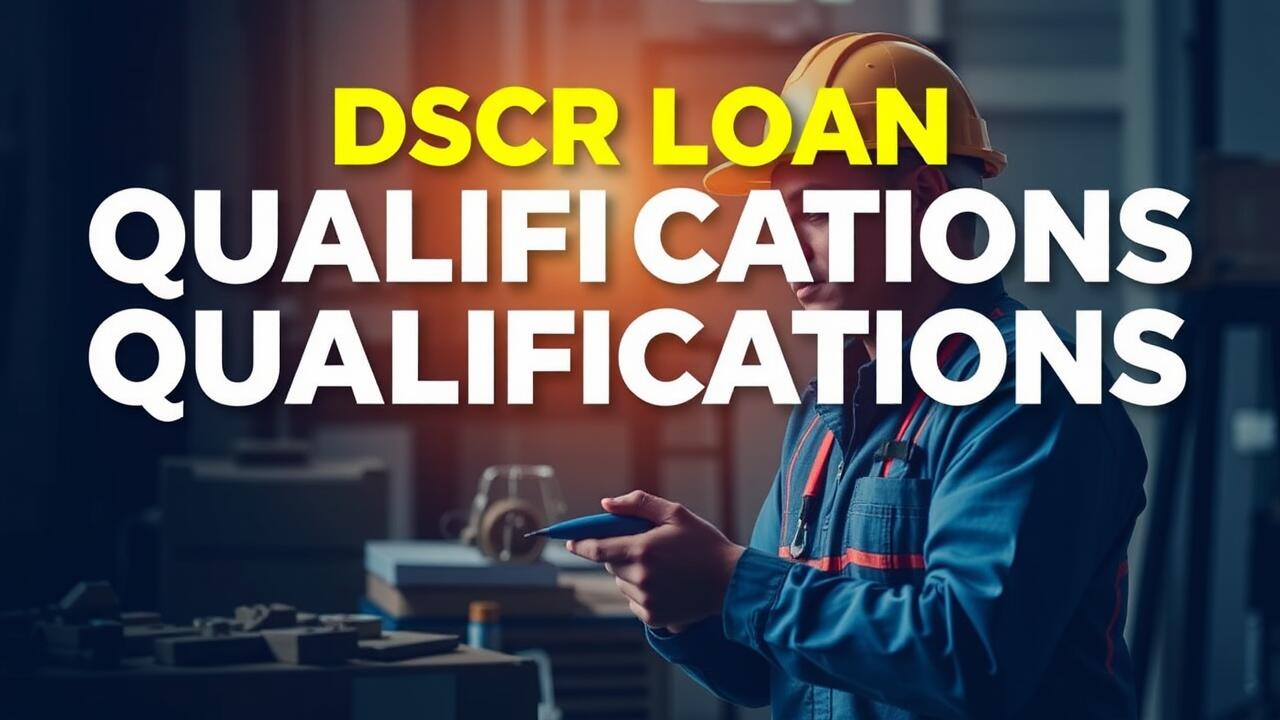
Table Of Contents
DSCR Loans vs. Traditional Loans
DSCR loans, or debt service coverage ratio loans, focus primarily on the income generated by a property relative to its debt obligations. Lenders assess the property's ability to cover its debt service, measuring this by the ratio of net operating income to the debt service required. This approach allows for greater flexibility in qualifying for the loan, especially for real estate investors and LLCs. Traditional loans typically rely on personal credit scores and income verification which can sometimes pose barriers for borrowers seeking larger investments.
DSCR Loan Qualifications differ significantly from those of traditional mortgages. While conventional lenders require extensive documentation of personal income, assets, and liabilities, DSCR loans prioritize the cash flow produced by the property itself. An LLC aiming to secure a DSCR loan must demonstrate consistent rental income and show that this income can adequately cover loan repayments. This shift in focus from personal to property-based financial performance allows many LLCs to access funding that might otherwise be unattainable through standard lending practices.
Key Differences and Similarities
DSCR loans are tailored to evaluate a borrower's ability to generate cash flow sufficient to cover debt obligations. Unlike traditional loans, which often rely on personal credit scores and income verification, DSCR loans focus primarily on the property's income potential. This approach allows investors and business owners to secure financing based on the revenue generated by their assets, rather than solely on personal financial history.
When considering DSCR Loan Qualifications, lenders typically look at the Debt Service Coverage Ratio, which must meet specific thresholds to ensure that the property's income can adequately cover loan payments. Traditional loans, in contrast, might require a broader range of financial documents and provide less flexibility in terms of cash flow considerations. Understanding these differences can help LLCs navigate their financing options more effectively.
Steps for an LLC to Apply for a DSCR Loan
Applying for a DSCR loan involves several essential steps for an LLC. First, it's crucial to assess the LLC's financial health by calculating the debt service coverage ratio. This metric evaluates the LLC's ability to generate enough income to cover its debt obligations. The lender will look closely at this ratio, so it's advisable to ensure that the income significantly exceeds the debt payments, meeting the DSCR loan qualifications.
The next step requires gathering the essential documentation that lenders typically require. This documentation often includes financial statements, tax returns, and operating agreements. It's beneficial to have a well-organized presentation of this information, as it can facilitate a smoother application process. Meeting the DSCR loan qualifications will not only enhance the LLC's chances of approval but also assist in negotiating more favorable loan terms.
Preparing Necessary Documentation
When preparing necessary documentation for an LLC seeking a DSCR loan, it is essential to gather all relevant financial records. This typically includes profit and loss statements, balance sheets, and tax returns from the previous few years. Lenders will assess these documents to evaluate the financial stability of the LLC. Comprehensive documentation helps establish credibility and reflects the organization's ability to generate sufficient cash flow, a crucial aspect of meeting DSCR loan qualifications.
Additionally, LLCs should prepare materials that detail their business plan and investment strategy. This documentation should outline projected cash flow, revenue streams, and any risks involved in the endeavor. Such information offers lenders insight into the LLC's long-term viability. A well-prepared package not only adheres to DSCR loan qualifications but also improves the chances of approval.
Common Challenges Faced by LLCs
LLCs often encounter several hurdles when seeking financing options like DSCR loans. One significant challenge involves meeting the specific DSCR loan qualifications that lenders require. These requirements can include maintaining a debt service coverage ratio above a set threshold, which often necessitates careful financial planning and projecting consistent income streams. Failure to meet these criteria can lead to denial of the loan application, which can stall business growth.
Another common issue for LLCs is the lack of a comprehensive credit history. Unlike established companies, many LLCs may not have a substantial track record of creditworthiness, making it difficult for lenders to assess their financial stability. This uncertainty can result in higher interest rates or stricter terms even for those who do qualify. Additionally, the limited personal liability protections that an LLC structure provides might impact a lender's willingness to approve loans without personal guarantees or additional collateral.
Overcoming Financial Obstacles
LLCs often encounter various financial obstacles when seeking a DSCR loan. One primary concern tends to be meeting the DSCR loan qualifications, as these loans require a solid cash flow and a clear understanding of the company’s income streams. LLCs may need to demonstrate consistent revenue and earnings, which can be challenging for newer businesses or those in fluctuating markets. Preparing a robust financial statement that highlights the company's performance over time becomes essential to address these concerns effectively.
Moreover, fluctuations in market conditions can impact an LLC's ability to meet necessary qualifications. Having a strategic financial plan can help navigate these uncertainties. Building a contingency plan that outlines how the LLC will manage cash flow during downturns may also improve the appeal to lenders. Understanding and preparing for the implications of DSCR loan qualifications allows an LLC to enhance its overall financial stability and position itself favorably for funding opportunities.
FAQS
What is a DSCR loan?
A Debt Service Coverage Ratio (DSCR) loan is a type of financing that assesses an entity's ability to pay its debt obligations based on its net operating income. It is commonly used for real estate investments and provides lenders with an insight into the cash flow generated by the property.
Can an LLC qualify for a DSCR loan?
Yes, an LLC can qualify for a DSCR loan as long as it meets the lender's requirements, including having a sufficient debt service coverage ratio that demonstrates its ability to repay the loan based on its income.
What documentation does an LLC need to apply for a DSCR loan?
An LLC typically needs to provide financial statements, tax returns, operating agreements, proof of income, and information about the property being financed. Additional documentation may be required depending on the lender.
What are the key differences between DSCR loans and traditional loans?
The main differences include how debt repayment is assessed; DSCR loans focus on cash flow and income generated by the property, while traditional loans may prioritize the creditworthiness of the borrower. DSCR loans often have different qualifying criteria tailored for income-generating properties.
What common challenges do LLCs face when applying for a DSCR loan?
Common challenges include meeting the required debt service coverage ratio, providing adequate documentation, and overcoming any negative financial history or insufficient creditworthiness. Understanding the specific requirements and preparing thoroughly can help mitigate these challenges.





